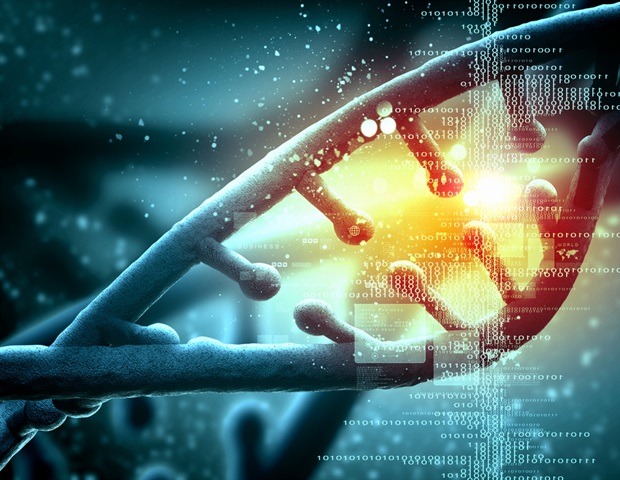
Making use of and creating new applied sciences for DNA synthesis to pave the way in which for producing whole synthetic genomes – that’s the aim of a brand new interdisciplinary heart that’s being established at Heidelberg College, Karlsruhe Institute of Expertise (KIT), and Johannes Gutenberg College Mainz (JGU). The purpose of the Heart for Artificial Genomics is to spark new developments in artificial genomics by primary analysis and expertise growth utilizing strategies of synthetic intelligence. The Carl Zeiss Basis (CZS) is financing the middle’s institution over a interval of six years with a complete quantity of twelve million euros.
In the long run, it needs to be doable to design and synthesize lengthy DNA sequences for functions in analysis, nanomaterials science, and drugs. The primary spokesperson of the brand new heart is methods biologist Professor Michael Knop, Deputy Director of the Heart for Molecular Biology of Heidelberg College (ZMBH).
Whereas the previous 20 years of genome analysis have been marked by the event of latest genome sequencing methods, it can turn into doable to switch genomes extra rapidly and simply, and even to create fully new genomes, utilizing revolutionary strategies of DNA synthesis and genome meeting. That is the imaginative and prescient that the Carl Zeiss Basis Heart for Artificial Genomics Heidelberg – Karlsruhe – Mainz (CZS Heart SynGen) will pursue within the coming years. The researchers from the three universities wish to design artificial DNA sequences with the help of AI-based strategies of study and modeling with a purpose to make focused modifications within the genome of organisms and provides it new functionalities. The purpose is to extract from them so-called biologics, that’s, biotechnologically manufactured merchandise. These are ultimately for use to provide bio-based medicines, develop gene therapies for ailments, breed pest-resistant vegetation, produce biofuels, and advance analysis into new kinds of supplies.
“On the CZS Facilities we consolidate experience throughout areas and disciplines. The life sciences particularly require a excessive diploma of interdisciplinary collaboration. On the CZS Heart SynGen we purpose to advance the manufacturing of synthetic DNA and faucet the immense potential for analysis, drugs, and past,” says Carl Zeiss Basis Managing Director Dr. Felix Streiter, explaining the motivation for funding the second CZS Heart in Germany.
The Heart for Artificial Genomics swimming pools the experience of three of the main analysis establishments, which at the moment are collectively engaged on an vital future-oriented subject from primary analysis to expertise growth. Our purpose is to realize a variety of functions in biotechnology, for instance in drugs, but additionally in supplies science. We’re more than happy to contribute to this with our experience.”
Professor Oliver Kraft, Performing President of KIT
Artificial genomics
“Artificial genomics is a younger however quickly rising analysis space worldwide, with switch potential for various socially related challenges. In our new heart we’ll pool the complementary experience of the three robust analysis universities at Heidelberg, Karlsruhe, and Mainz within the life sciences, molecular methods engineering, and biomedical analysis. That manner, we intend to coordinate all of the steps in artificial genomics, from design and manufacturing proper as much as the appliance of artificial genetic supplies and organisms,” says Heart Spokesperson Michael Knop. “The brand new heart will present us with a novel alternative to mix totally different areas of experience and disciplines in a brand new manner. Significantly the discourse of biology and drugs with specialists in simulation and modeling will present us new methods not solely to generate artificial genomes, but additionally to higher perceive and use pure and synthetic modifications and epigenetic mechanisms,” Professor Sylvia Erhardt explains. The molecular biologist of Karlsruhe Institute of Expertise is a member of the CZS Heart SynGen’s three-member Board of Administrators alongside Professor Michael Knop and biophysical chemist Professor Edward Lemke of Mainz College.
The Carl Zeiss Basis Heart for Artificial Genomics Heidelberg – Karlsruhe – Mainz began work in January 2024. Researchers collaborating on the three areas characterize totally different disciplines, together with biology, biochemistry, biophysics, biotechnology, artificial biology, and bioengineering, in addition to philosophy and regulation, genomics, immunology, epigenetics, virology, and information science. As well as, extra worldwide specialists and early-career researchers are to be recruited to work on the new heart. Moreover, a competence heart for the synthesis of artificial DNA is to be arrange in Heidelberg, the so-called CZS Heart Artificial DNA Accelerator Lab. Additionally concerned within the CZS Heart SynGen are scientists from the German Most cancers Analysis Heart and the Heidelberg Institute for Theoretical Research, in addition to exterior companions from science and enterprise.
The CZS Heart SynGen was formally opened with a festive occasion held at Heidelberg College on March 4, 2024. Along with the lead researchers, representatives of the Carl Zeiss Basis and the taking part universities additionally took half.


